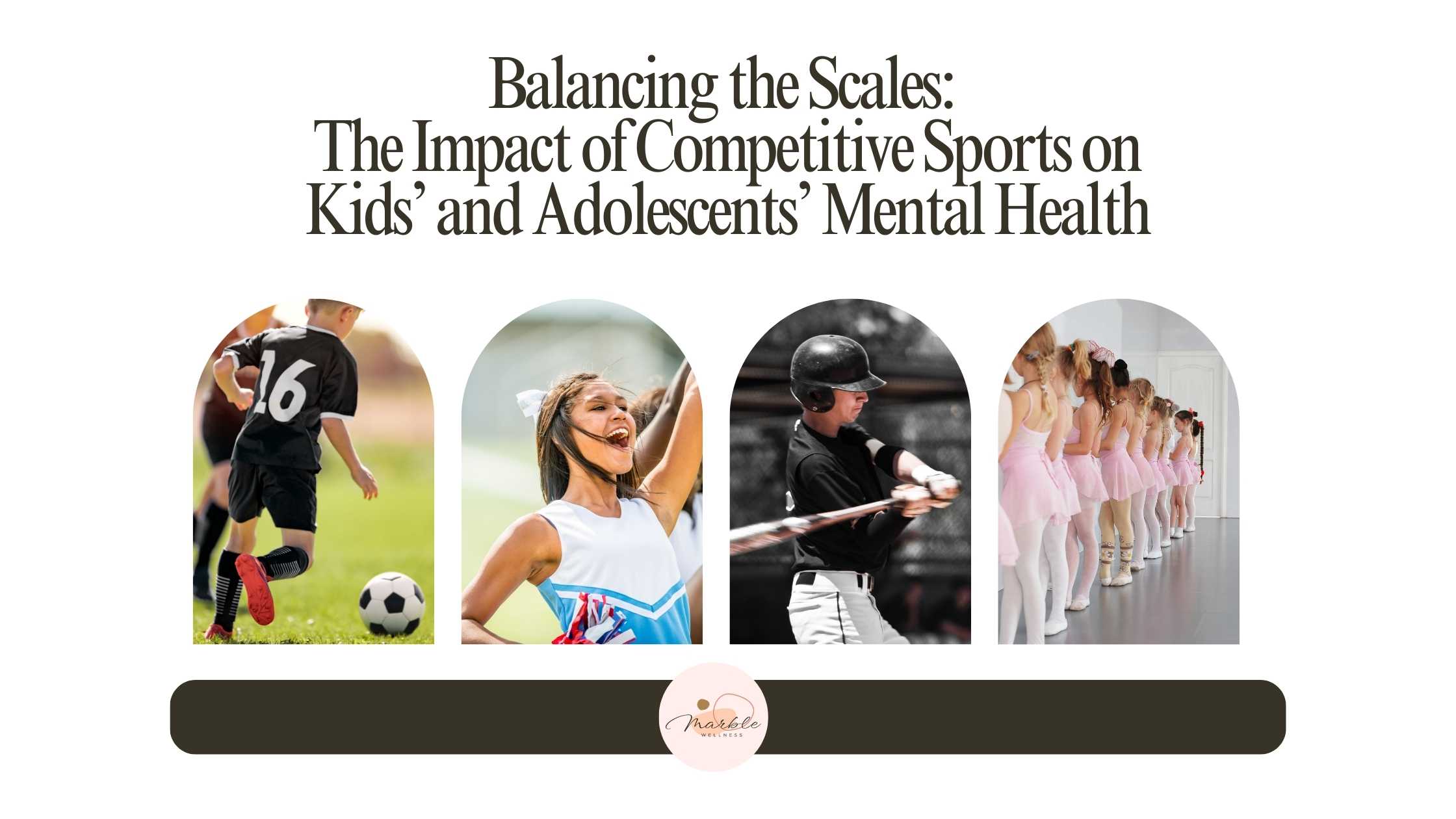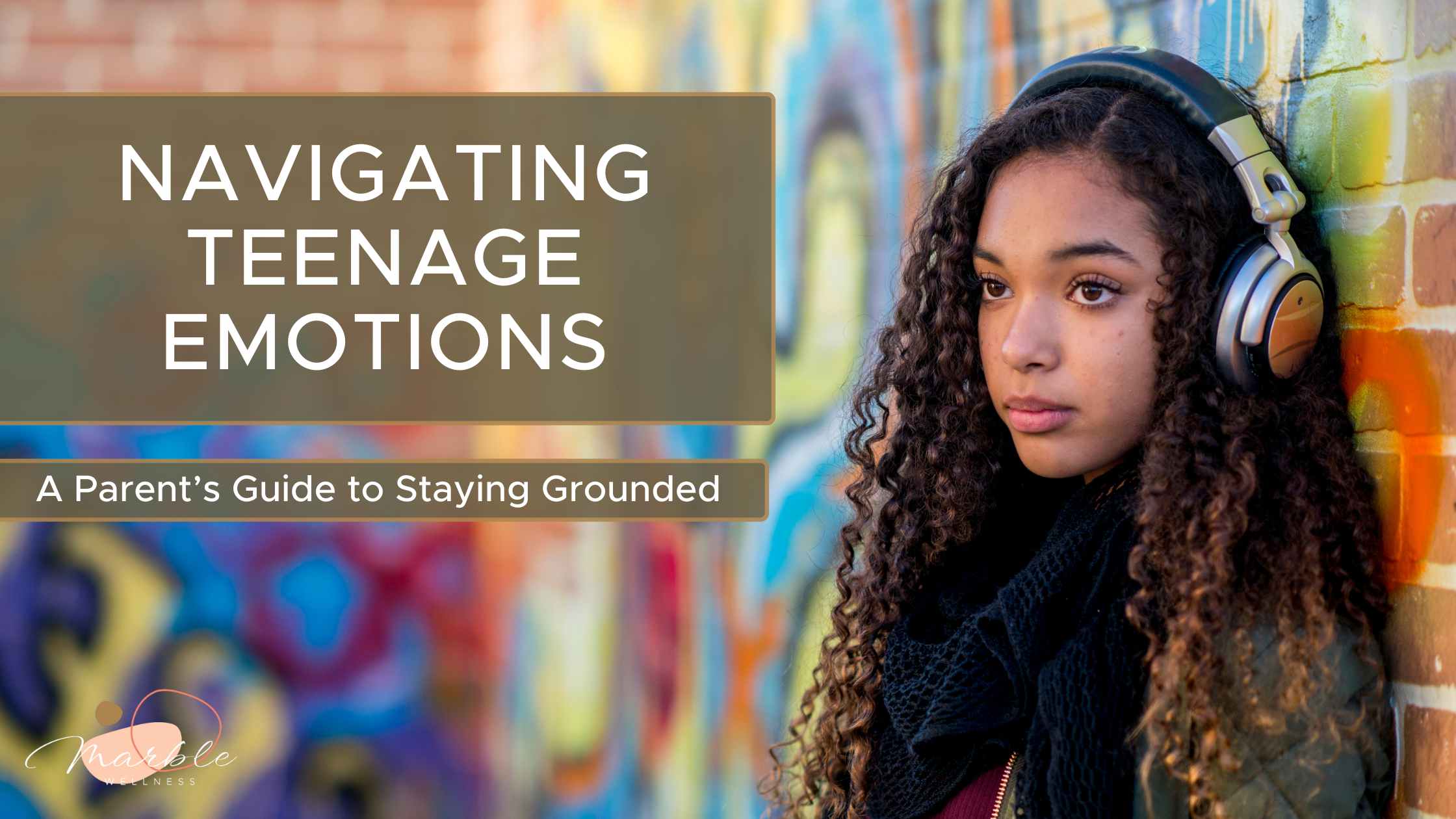If you’re parenting a child or teen in competitive sports, you’ve probably already heard about the mental health challenges that can come with it—burnout, pressure, anxiety, and self-doubt. You might have nodded along, recognizing moments where your child seems a little more irritable, withdrawn, or overwhelmed than usual.
But now you might be asking:
“Okay, so how do I actually support my athlete—not just with snacks and rides to practice—but emotionally?”
This blog is for you.
While coaches and therapists absolutely play a role in your child’s athletic experience, parents and caregivers are often the emotional anchor. You’re the one they come home to. The one they silently scan for approval, encouragement, and safety.
Let’s talk about how to be that steady presence when the pressure rises—and how to support your young athlete in ways that help them stay healthy, resilient, and grounded.
You’re More Than a Cheerleader (Even If You’re Great at That)
First, let’s name this: You’re probably doing so much already.
Logistics, meals, equipment, pep talks in the car. You’re likely giving time, money, and energy so your child can pursue something they love.
And yet—there’s a deeper role that can be easy to overlook:
The emotional supporter. The nervous system co-regulator. The person who reminds them they’re valuable no matter what the scoreboard says.
This part of the job might not get as much airtime—but it’s just as essential.
What Kids in Competitive Sports Really Need from Parents
Here are a few emotional needs that often go unmet in young athletes—not because parents don’t care, but because we live in a culture that prioritizes winning, performing, and achievement.
💬 Unconditional Support, Not Conditional Praise
Kids need to hear “I love watching you play” more than “You were amazing out there.”
Even if they missed every shot.
What they really want to know is:
“Am I still enough when I don’t win?”
“Do I matter to you when I mess up?”
Keep the focus on effort, attitude, and joy—not outcomes.
😌 A Place to Be Imperfect
Your athlete is being evaluated everywhere: on the court, in the classroom, on social media. Let home be a place where they can exhale. Where it’s okay to cry, vent, or say “I hated that game.”
You don’t have to fix it. You just have to listen.
🧠 Help Naming What They’re Feeling
Many kids don’t know how to articulate burnout, performance anxiety, or comparison. You can help by saying things like:
- “It seems like you’ve been really tense before games—what’s going on inside?”
- “Do you feel pressure to keep performing at the same level?”
- “Are you still enjoying this, or is it starting to feel heavy?”
These aren’t confrontational. They’re invitations.
How to Support Without Adding Pressure (Even Unintentionally)
Even the most well-meaning parent can accidentally add pressure. Here’s how to stay supportive without tipping into “coach mode” or unintentional intensity.
🚫 Avoid Over-Analyzing Their Performance
The ride home isn’t always the best time to break down what went wrong. Unless they bring it up, let them take the lead. Sometimes silence (or ice cream) says more.
✔️ Celebrate Small Wins That Have Nothing to Do with Winning
- “You were really encouraging to your teammate today.”
- “I noticed how you kept your composure when it got rough out there.”
- “It looked like you were having fun—that made me so happy to see.”
These moments are character-building—and often more meaningful than a trophy.
🔄 Let Them Change Their Mind
If your child suddenly wants to quit, take a break, or explore a new sport, it can feel scary. You’ve likely invested a lot of time and energy.
But part of emotional support is allowing space for growth, change, and autonomy. A temporary pause isn’t a failure—it’s feedback.
Help them explore what’s behind the feeling. Is it burnout? Fear? Loss of passion? Give them room to process out loud.
When to Consider Therapy for Your Young Athlete
Sometimes, even the most supportive home environment isn’t enough. If you notice:
- Sudden changes in mood or motivation
- Sleep or appetite shifts
- Increased anxiety before practices or games
- Self-critical statements or perfectionism
- Withdrawing from friends or activities
…it may be time to invite in a neutral, compassionate third party.
Therapists can help young athletes:
- Reconnect with joy in their sport
- Manage performance anxiety
- Cope with identity struggles (“Who am I without this?”)
- Set boundaries and find balance
- Build self-worth that isn’t tied to performance
As we shared in our first post on this topic, therapy offers a unique space for emotional support that sometimes kids can’t access through parents or coaches alone.
You’re Doing More Than You Know
Parenting a competitive athlete is no small feat. You’re juggling logistics, emotions, and a whole ecosystem of expectations.
But the most powerful thing you offer is often invisible:
The emotional grounding that tells your child they are safe, loved, and seen—whether they’re holding a medal or holding back tears.
So take a breath. You don’t have to get it perfect. You just have to keep showing up with curiosity, compassion, and presence.
And if you need support—or your child does—we’re here to help.
Start Parent or Child Therapy in the St. Louis Area
If you live in the St. Louis metro area and are ready to support your family differently, our expert St. Louis therapists are here to help. Not only do we have a team of therapists in Ballwin, MO, but we have also recently expanded to serve the Lake St. Louis and Wentzville area! Reach out to our Client Care Coordinator today to discuss your therapy options, both in-person and via online therapy in Missouri.
Contact Us!
Learn About Our Group Offerings

Additional Counseling Services at Marble Wellness in St. Louis, MO
Marble Wellness Counseling services are designed to help set you on a path of living a more fulfilled, calm, and happy life. Our St. Louis area therapists have a variety of training backgrounds and areas of expertise. We have child and play therapists, therapists for teens, EMDR therapists, men’s mental health experts, couples therapists, and more! We specialize in anxiety, depression, grief, chronic illness, trauma & PTSD, life transitions, and maternal overwhelm. Our practice also specifically helps new moms with various postpartum concerns, moms in the thick of parenting, and moms with teens. We can also chat from wherever you are in the state with online therapy in Missouri. No matter where you are in your journey, we are here to help you thrive!



